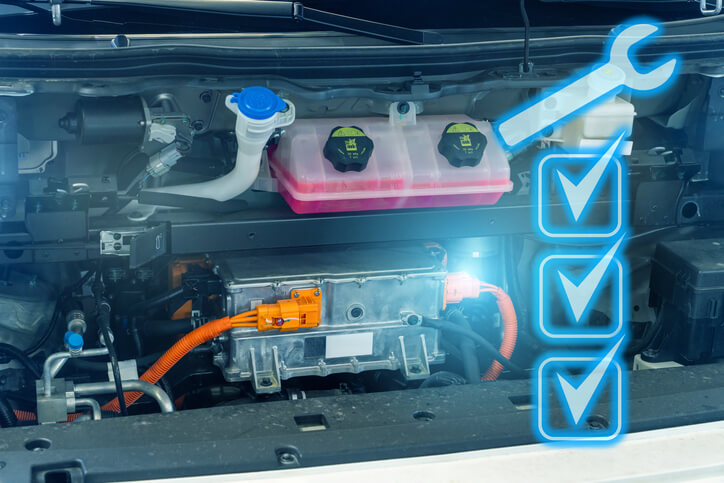How Mechanics Support EV Heat Management in Hot Weather
As electric vehicles (EVs) grow in popularity, the role of the auto mechanic is changing to meet new demands, especially when it comes to heat management. In hot climates or during summer months, EVs face significant thermal challenges. Effective cooling systems are essential to both safety and performance, from maintaining optimal battery temperature to ensuring cabin comfort.
For students enrolled in automotive training, understanding the thermal systems in EVs is critical. At ATC Surrey, hands-on instruction and up-to-date technology help future mechanics prepare for the real-world responsibilities of keeping electric vehicles cool, even in extreme heat. Heat management in EVs isn’t just about passenger comfort, it’s a key factor in preserving performance and long-term reliability.
Why Heat Management Matters in EVs
Unlike gasoline-powered vehicles, EVs rely on high-voltage battery packs and electric drivetrains, which are highly sensitive to temperature changes. Excessive heat can:
- Shorten battery lifespan by accelerating chemical degradation
- Degrade charging performance, especially during fast charging
- Reduce driving range due to increased energy usage by cooling systems
- Trigger safety shutdowns that disable the vehicle to prevent overheating damage
To address these risks, modern EVs are equipped with sophisticated thermal systems designed to regulate battery, inverter, and cabin temperatures. These systems often include:
- Liquid-cooled battery packs
- High-efficiency heat exchangers
- Electrically-driven coolant pumps
- AC-based refrigerant loops for multi-zone cooling
Without these components functioning correctly, vital EV systems are at risk. Heat can cause software glitches, permanent component damage, or thermal runaway: a hazardous chain reaction where rising temperatures trigger internal chemical reactions in the battery, generating even more heat. If unchecked, this feedback loop can lead to fire or explosion.

How Auto Mechanics Help Prevent Overheating
The auto mechanic plays a central role in keeping these systems operating at peak performance. In addition to traditional cooling system tasks, EV maintenance includes services such as:
- Checking coolant levels in sealed battery cooling loops
- Flushing and refilling specialized thermal fluids that serve both the battery and the inverter
- Inspecting electric water pumps and cooling fans for proper operation
- Running diagnostics on thermal management modules and sensors
- Calibrating thermostats and software controls based on temperature feedback
These preventative measures are especially critical in warmer months, where the strain on EV thermal systems increases dramatically. Mechanics trained in EV heat management help prevent costly breakdowns and extend the usable life of key systems.
What Students Learn in Auto Mechanic School
Our auto mechanic school trains students to understand how heat affects different vehicle systems. In EV-specific modules, students gain experience in:
- Identifying heat-related trouble codes
- Monitoring battery temperature profiles
- Understanding how thermal systems integrate with the EV’s computer
- Replacing components like electronic valves and heat exchangers
This training prepares students to diagnose subtle performance issues and perform preventative maintenance.

Diagnosing Heat-Related Issues
Thermal management problems often begin with small warning signs, such as reduced charging speed or a drop in performance. Using manufacturer scan tools and service data, trained technicians can:
- Read temperature thresholds and error logs
- Monitor system behaviour during stress tests
- Pinpoint failing components in closed cooling loops
This level of diagnostic precision is only possible through comprehensive automotive training.
Why Specialized EV Knowledge Matters
As more drivers transition to EVs, service centers need mechanics who understand the unique demands of electric platforms. Graduates of specialized auto mechanic school programs are better positioned to succeed in shops that service electric, hybrid, and internal combustion vehicles.
By learning how to support EV heat management, mechanics become part of the growing wave of professionals shaping the future of transportation.
Are you looking for comprehensive automotive training?
Contact ATC Surrey for more information.


